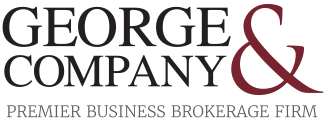508-753-1400
View Blog Posts by Category:
View Blog Posts Tagged with:
2018: The Year to Take Advantage of 'Dry Powder' in Private Equity

Take Advantage of Dry Powder in Private Equity
“Dry powder” has proved to be a hot topic within both the M&A and private equity industries in recent months. “Dry powder” refers to the unused capital resting in the hands of private equity firms that has yet to be invested. While private equity firms are currently sitting on an accumulation of over one trillion dollars’ worth of capital that is available for investing, they have held back due to a lack of viable prospects. Learn how to use dry powder in private equity to sell your business.
What makes this excess of dry powder so dangerous to these industries? Capital raised by private equity firms has a limited life span and only lasts for about five years before it must be returned to the investors.
If private equity groups are unable to invest this money in suitable acquisition opportunities before the time is up, then private equity will run dry. Once the capital is returned, it will be difficult for private equity groups to raise anything further. This could suggest the end of private equity as we know it today.
What Does This Mean for M&A?
It has been found that the main reason behind private equity’s refusal to use up the available capital is that an insufficient number of businesses for sale are appropriate for private equity acquisitions. Private equity groups tend to seek out companies with a high potential for growth because they need to be sure that the deal is a worthwhile investment for their limited partners. Otherwise, the economy is in too fragile of a condition for private equity funds to take larger risks.
For the time being, this dry powder issue indicates a tremendous opportunity for the M&A industry. If M&A firms can provide these groups with acquisition prospects that are appropriate for their market, then they may be able to receive a premium for their business. Since private equity has already begun a recent shopping spree, it appears that these groups are eager to buy as long as the company is of the right variety.
As of late, private equity has been getting involved in transactions that are turnover deals—purchasing a company for the sole purpose of turning it around and selling it to a new buyer. However, just because these deals have become the most popular lately, does not mean that private equity firms are not seeking out more permanent deals; they are merely having a difficult time finding the right sellers.
Possibility for Failure
Unfortunately, the great amount of capital sitting in the hands of private equity could also mean bad news for M&A. If a majority of this money is forced to be returned to the limited partners, then the private equity industry will essentially go bankrupt. M&A depends heavily on private equity to fund a large amount of deals. Countless business buyers could disappear if private equity firms are unable to get rid of the overhang before the life span of this capital ends. Since neither the M&A industry nor private equity groups are keen on such a massive failure, both will be working together within the next year to be sure that the extra capital is invested in valuable companies.
Best Time to Sell Your Business
If you are a business owner interested in selling your business to a private equity group, now is the most opportune time to market your business for sale. Private equity groups will pay the right price for the right company. In order to prepare for a sale, business sellers should work to grow their company in a positive direction that illustrates an increasing cash flow with the aptitude to continue progressing in the future. Private equity firms willing to buy the right business will not hesitate to spend a higher amount if they feel that the company fits within their requisites.
It is also critical to present the company in a professional yet concise manner, since private equity groups look at thousands of business opportunities in a year. Hiring an M&A expert is the best way to get your company noticed, otherwise you may become lost in the pile of acquisition opportunities. Employing an M&A professional will ensure that your business is appropriate for a private equity buyer. An intermediary will assist you in presenting your company in an attractive manner and will help you qualify for private equity funds if your business possesses enough growth potential.
Do you have any questions or concerns about dry powder or how this overhang may affect your ability to sell your business? Please contact George & Company. Our experts can guide you with complete confidentiality.
